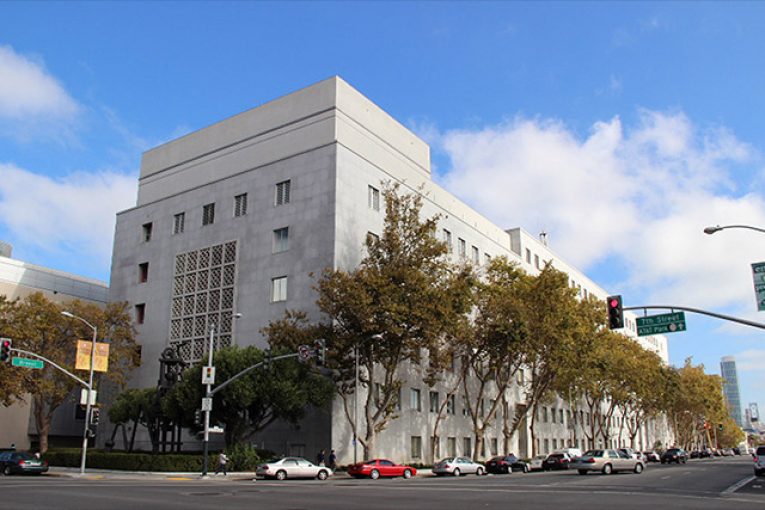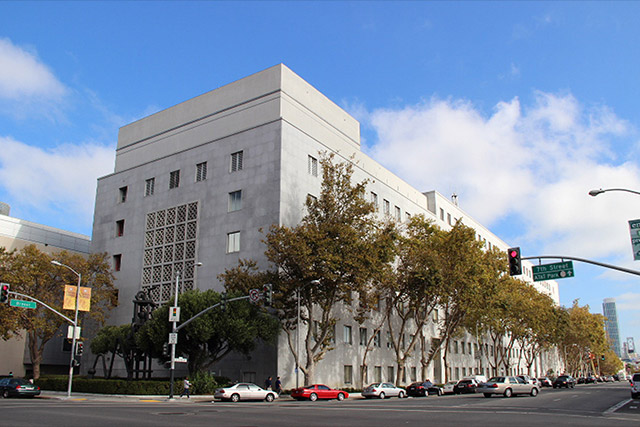

By Marshall Hammons, Pam Nichada, and Ruby Wilks
On Monday afternoon, the jury returned with a verdict of not guilty on all counts.
Closing arguments took place the morning of Friday, July 12, in ongoing murder case. The feeling in the air was that of a quiet intensity. Assistant District Attorney Donald du Bain went first.
Mr. Du Bain focused on the basic facts of what happened that day. He said that it was clear that the defendant had heard voices, struck her grandmother in the face, and ultimately ended the struggle in the bathroom.
Du Bain then went on to explain that his focus was on second degree murder, not voluntary manslaughter or the lesser charges because, he said, the intent to kill in this case could be proven by the defendant’s own statement she made to police in the immediate aftermath of her blackout. During her episode, she asked her grandmother, “Do you want me to choke you?” This, according to the assistant district attorney, determined the defendant had an intent to kill. Du Bain also said that the facts and circumstances, notably the amount of time she was supposedly conscious during the incident, indicated her intent.
Finally, Mr. du Bain went into the issue of consciousness. Du Bain claimed the defendant was aware of her actions and what she was doing, including responding to a doorbell and various questioning from the various first-responders at the scene. Du Bain further claimed that her statements to Sergeant Peña a couple days after the incident provided enough detail  that only someone conscious could have made these statements. The assistant district attorney concluded by saying society should hold people accountable for their actions.
that only someone conscious could have made these statements. The assistant district attorney concluded by saying society should hold people accountable for their actions.
The defense then presented closing arguments. Deputy Public Defender Danielle Harris began by explaining how surreal of an experience this trial had been. She explained that defending a guilty person is easy; if she loses a motion or a verdict, it does not keep her up at night. What does keep her up at night, she continued, is innocent people like the defendant.
The deputy public defender explained the tragedy and irreparable harm done to the family, and how they are dealing with the situation as best as they can. But now the government has stepped in to try and further tear the family apart and put added hardship on them.
The defense explained how the defendant’s brain disorder caused her an inability to resist commands from voices in her head. She exhibited multiple symptoms of this inability to resist commands when she saw the numerous medical professionals over the course of two months.
Then the defense counsel explained how the information Mr. du Bain brought into the case to show both the defendant’s consciousness and her intent should not be given any weight. Most of this information came from statements made by The defendant herself in the immediate aftermath of the horrific event. Many of her responses were extremely limited in scope and in the amount of information she was able to relay. The woman only responded after repeated questions from the first-responders, and there was an overarching blankness to her expression.
Ms. Harris then went on to explain the concept of reasonable doubt, and artfully demonstrated the scale of certainty used in criminal law that authorizes government action. Beyond a reasonable doubt is the highest level of certainty applied, and the deputy public defender made that clear as day to the jurors.
The defense further pointed out the absurdity of the prosecution deciding to charge the defendant with second degree murder. The defense speculated that the prosecution had decided to overcharge her in hopes that the jury would come to “a compromise,” instead of applying the elements of law as they should.
The defendant, the defense argued, never had an intent to kill her grandmother, whom she loved dearly. In fact, the prosecution’s only argument for intent to kill rests on her asking her grandmother, “Do you want me to kill you?” As the defense explained, this question was not an expression of an intent to kill, rather the question was drawn from her inability to process information and her reaction to the auditory command hallucinations telling her to hurt her grandmother.
The defense also explained when someone acts in imperfect self-defense the highest level of homicide that by law the highest crime with which they should be charged with is voluntary manslaughter. Indeed, the defendant was undoubtedly acting in imperfect self-defense because, although she was not in any kind of danger in reality, she truly feared that she was going to be hurt by her grandmother. The defense pointed out that The defendant was likely able to feel these fears and emotions so strongly because she was drawing upon real memories of childhood sexual abuse and trauma.
Ms. Harris argued that even a charge of voluntary manslaughter would be too extreme, considering the command hallucinations the defendant was suffering from, let alone her blacking out during the most critical moments of the incident. Not only does this not qualify as an intent to kill, the deputy public defender argued, it demonstrates unconsciousness, which requires a not guilty verdict.
While defense counsel stated that she doesn’t blame anyone in particular in this case, she does blame the system for failing to provide the defendant with the help she and her family so clearly needed and so clearly asked for. And, she does blame the driver of the Mustang who assaulted the defendant, causing this devastating series of events to unfold.
Before the incident leading to her arrest, she had already been labelled “high risk” by medical professionals. She had hurt herself two times and was convinced that her family was going to kill or rape her. Despite reaching out for help nine different times, She did not receive the anti-psychotic medication that ultimately made her command hallucinations go away within one day until after the fateful incident with her grandmother.
As the defense expert, Doctor Woods, explained during his testimony, our system in practice does not give people the help they need until it is too late—until someone has been hurt.
The jury came to a not guilty verdict on all charges after just a day of deliberations.



